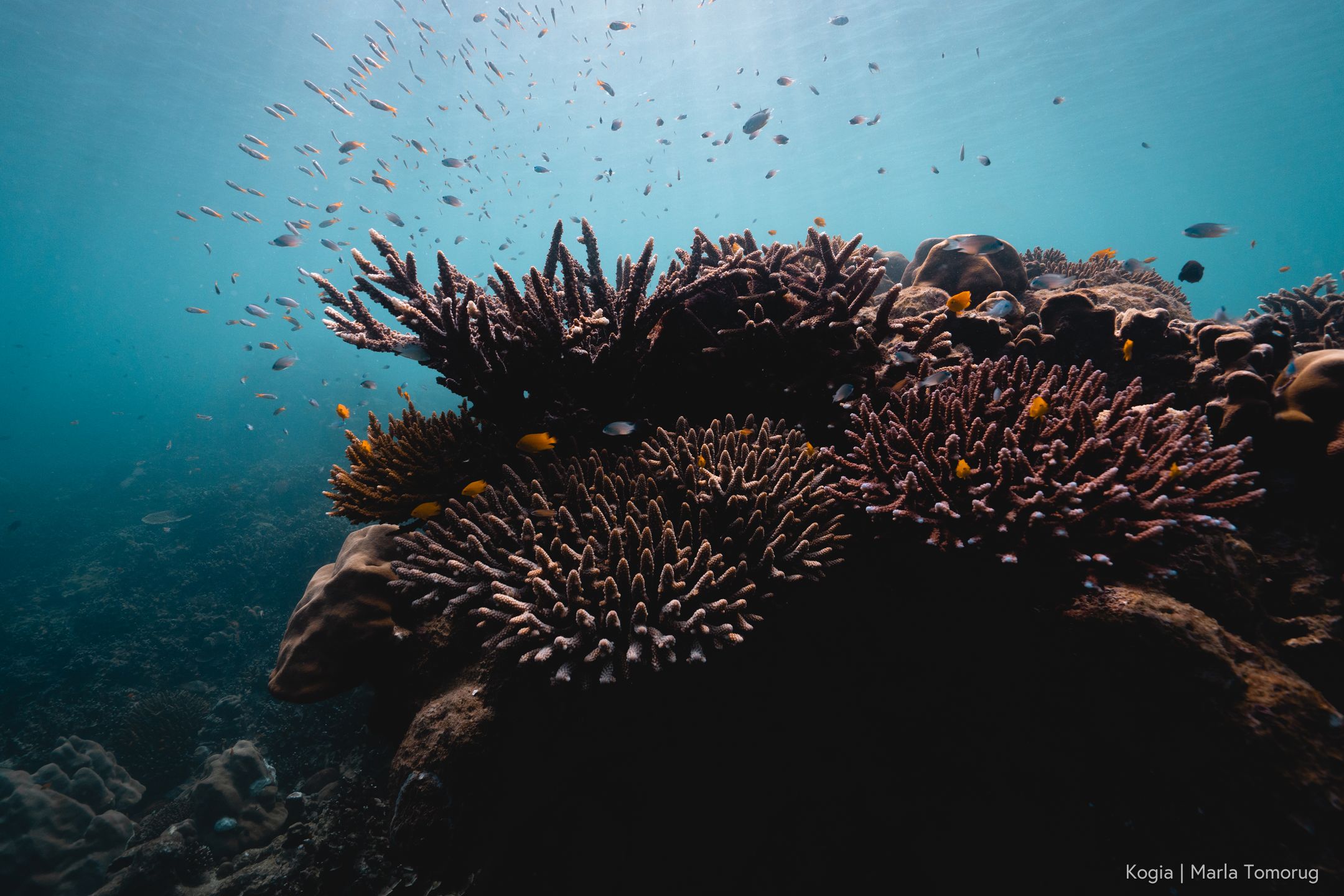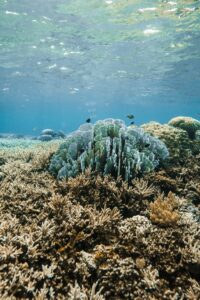In a recent review in the journal BioEssays, Rutgers researchers described the next steps needed to produce affordable, field-portable diagnostic tests to deliver coral health monitoring tools to local communities.
The latest collaborative effort brought together coral restoration practitioners, which included ICRI member the Coral Restoration Foundation, academic researchers at Rutgers, small business owner, CapitalCorals Research & Restoration, and a foundation program manager at Revive & Restore to address the urgent need for practical coral health diagnostics.

Coral reefs face global declines due to disease, warming oceans and local pressures like pollution, eutrophication and overfishing of herbivorous fishes. In response, there has been a growing effort to develop point-of-care technologies to monitor coral health so that restoration practitioners and local communities can rapidly evaluate coral health status and make informed decisions regarding natural resource management prior to reef loss.
“Reef-building corals are the foundation for tropical coral reef ecosystems, providing home and habitat for important food fishes, which are central to the diet of many island nation communities,” said lead study author Erin Chille, a doctoral candidate in the Bhattacharya lab in the Department of Biochemistry and Microbiology at the School of Environmental and Biological Sciences. “They also protect communities from storm surge by acting as natural wave barriers. Ultimately, the well-being of these communities is directly tied to the health of corals,” added Chille.
Coral populations face challenges similar to humans, including stress, disease and reproduction. “We decided to make these challenges the focus of our review, outlining what next steps and resources would be needed to get tools into the hands of communities who need them,” noted Chille.
The review identifies protein biomarker discovery as the critical next step for tool development. Protein biomarkers are “low-hanging fruit” for integration into existing human medical diagnostic platforms – enabling their use for monitoring coral health.
“Lateral flow tests saved the day for public health during the COVID-19 pandemic, enabling rapid population-level health monitoring so that public health officials could make informed decisions to keep their contingents alive and healthy. What if these technologies could also be used to monitor coral health?” asked Chille.
“They could revolutionize how we manage coral reefs, providing rapid, real-time information on disease, reproduction and stress,” she said.

The authors emphasize that to develop effective lateral flow tests, research needs to focus on developing a library of validated proteomic biomarkers. Much of the research has thus far focused on developing transcriptomic (mRNA) markers due to rapid advancements in sequencing technology compared to proteomics. However, the review highlights the limited correlation between mRNA and protein levels, underscoring the necessity of proteomic validation.
“Existing transcriptomic research remains valuable, but integration into lateral flow assays will require rigorous validation with proteomic data,” noted Chille.
Rutgers researchers are leading this effort with a prototype lateral flow test.
“This prototype is meant to act as a proof-of-concept. We targeted biomarkers that correlate strongly with coral bleaching. Therefore, the test is a direct measure of the bleaching response, which is one of the leading causes of coral death. In the future, we hope to develop markers that are predictive of bleaching so that intervention measures steps can be taken to reduce coral mortality,” said Chille.
Developing these biomarkers is complicated by incredible genetic and taxonomic diversity underlying the coral lineage.
“Humans are a single species, but there are over 1000 known species of reef-building coral. It is difficult enough to find biomarkers that behave similarly across just the human population,” she noted.
In their review, the researchers argue that to account for this diversity, biomarker discovery should focus on developing both a universal set of core metabolic or protein markers that are applicable across many coral species, as well as targeted biomarker panels specific to populations with shared biology and risk factors, such as Acropora cervicornis (staghorn coral) and Acropora palmata (elkhorn coral) in the Caribbean.
The researchers estimate that field-portable tools for coral monitoring could become publicly available in the next five to 10 years. However, this rate of progress is contingent on collaboration between funding agencies, restoration practitioners, businesses, local communities, and researchers.
“Conservation-focused federal funding in the United States is becoming increasingly scarce,” said Chille. “Research groups may increasingly rely on private funding sources unless federal priorities shift. We hope that the current and upcoming administrations will recognize and support the importance of protecting our marine ecosystems for future generations.”
Source: Rutgers official article by

